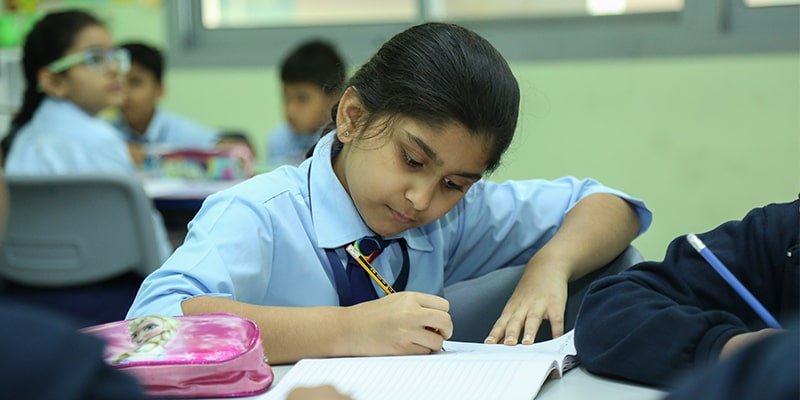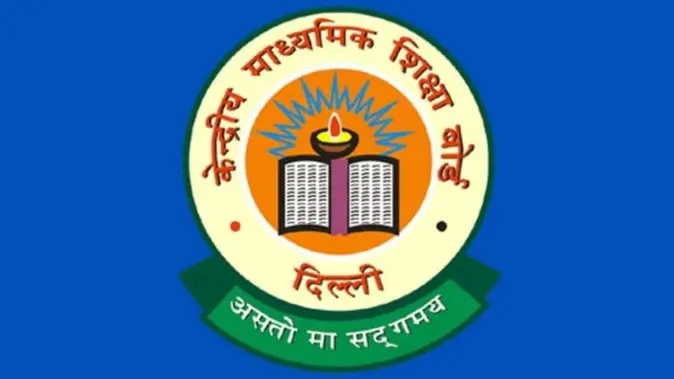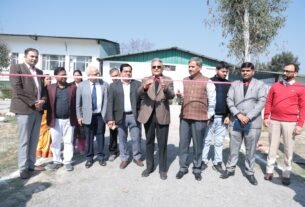CBSE : Skill education refers to the structured programs and training that equip students with practical abilities and competencies necessary for the workforce. In today’s rapidly evolving economic landscape, the significance of skill education has grown significantly, as it fosters a connection between theoretical knowledge and practical application. This is crucial in preparing students not only to excel academically but also to thrive professionally in their future careers.
The contemporary educational environment demands a shift from traditional learning paradigms, which often emphasize rote memorization and theoretical constructs, toward a more integrated approach that blends knowledge acquisition with relevant skill development. As industries increasingly seek employees who are job-ready, the need for educational institutions to incorporate skill education within their curricula has become paramount. This integration not only enhances the employability of graduates but also nurtures critical thinking, problem-solving, and adaptability, which are vital in today’s job market.
Moreover, skill education complements existing educational frameworks by offering opportunities for hands-on experience in specific fields, allowing students to apply what they learn in tangible ways. This experiential learning fosters deeper understanding and retention of knowledge, enhancing overall educational outcomes. Institutions that prioritize skill education are better positioned to meet the demands of the job market while empowering students with the tools they need to succeed.
As the global economy continues to evolve, educational policies must adapt accordingly, ensuring that students are not just passive recipients of information, but active participants in their learning journey. By emphasizing skills that align with industry needs, schools can significantly contribute to producing a competent workforce ready to face the challenges of the modern world.
CBSE Initiatives to Promote Skill Education
The Central Board of Secondary Education (CBSE) has been increasingly focused on fostering skill education within schools in India, recognizing its vital role in preparing students for the complexities of the modern workforce. Among its hallmark initiatives is the ‘Skill Education Curriculum’, which aims to integrate practical skills into the academic syllabus for students in classes IX to XII. This curriculum covers diverse areas such as Information Technology, Healthcare, and Hospitality, thereby ensuring that learners acquire not just academic knowledge but also hands-on expertise that can be applied in real-world scenarios.
Another significant initiative is the ‘Student Skill Development Program’, which provides a structured support system for students to develop essential skills through various extracurricular activities. This program emphasizes not only technical skills but also soft skills such as communication, teamwork, and problem-solving. By incorporating these vital competencies, CBSE seeks to enhance the overall learning journey of students, equipping them with the tools required for future employment opportunities and personal growth.
Furthermore, CBSE has introduced various workshops and teacher training sessions aimed at enhancing the pedagogical approaches to skill education. These workshops equip educators with the necessary tools and methodologies to deliver skill-oriented lessons effectively. The importance of integrating skill education into the existing curriculum cannot be overstated, as it prepares students to meet the dynamic demands of various industries post-graduation.
By fostering a conducive environment for skill development, CBSE is significantly contributing to the holistic development of future generations. This incorporation of skill education within the school framework not only aims to elevate individual potential but also enhances the competence of the workforce, aligning with the broader national objective of enhancing employability among youth in India.
Collaborations and Partnerships with Industries : CBSE
In the ever-evolving landscape of education, the significance of collaborations and partnerships between the Central Board of Secondary Education (CBSE), schools, and various industries cannot be overstated. These strategic alliances serve as vital conduits for enhancing skill education, enabling students to acquire competencies that align with the current demands of the industry. By engaging with professionals who possess practical experience, educational institutions can transcend traditional learning paradigms and provide students with opportunities that foster real-world application of knowledge.
One of the primary advantages of such collaborations is the provision of internships and hands-on training. By partnering with industries, schools can offer students firsthand exposure to workplace environments, allowing them to understand the intricacies of different professions. This approach not only enriches the educational experience but also bridges the gap between theoretical knowledge and practical skills, preparing students to meet workforce challenges. For instance, several CBSE-affiliated schools have successfully implemented internship programs in collaboration with local businesses, resulting in improved student engagement and a clearer pathway to employment.
Moreover, these partnerships support the curriculum development by integrating industry-relevant skills that enhance employability. Successful case studies from various schools demonstrate that engagement with external entities can lead to customized training modules reflecting real-time industry needs. Students benefit from this exposure, gaining insights into emerging trends while developing their professional competencies. The collaboration fosters a robust ecosystem where academic institutions, students, and industries coexist and thrive, culminating in a workforce that is well-prepared and equipped to navigate future challenges.
Ultimately, the engagement between CBSE, schools, and industries exemplifies a forward-thinking approach to education, ensuring that future generations are not only academically competent but also skilled and adaptable to the ever-changing job market.
Future Prospects and Challenges of Skill Education in India
The landscape of skill education in India is poised for transformative growth, aligning closely with the nation’s economic ambitions. As the demand for skilled labor increases, the focus on integrating skill education into the traditional curriculum is paramount. The potential for upward movement in this sector hinges not only on government initiatives but also on evolving perceptions about the value of skill-based training. When schools proactively incorporate skill education, students are better equipped to meet the challenges of a competitive job market, ultimately contributing to a more robust economy.
However, the implementation of skill education faces significant hurdles. One of the primary challenges is the lack of resources that many schools encounter. Limited financial support restricts the development of necessary infrastructure, including practical training facilities and essential equipment. Furthermore, various educational institutions struggle to recruit qualified trainers who possess both teaching experience and industry-relevant skills. This scarcity impairs the effectiveness of programs designed to enhance student competencies, resulting in a widening gap between theoretical knowledge and practical application.
Moreover, resistance to change from traditional teaching methods poses a considerable challenge in adopting skill education. Many educators are entrenched in conventional approaches, making it difficult to shift towards a more hands-on, experiential learning model that skill education necessitates. To effectively overcome these barriers, it is vital to draw insights from global best practices. Countries that have successfully integrated skill education, such as Germany and Australia, serve as viable models. Strategies such as teacher training programs, partnerships with industry, and government incentives could facilitate smoother transitions toward a more skill-centric curriculum in Indian schools.
Addressing the challenges of skill education in India will require collaborative efforts from policymakers, educational institutions, and industry stakeholders. By focusing on innovative approaches, the prospects for skill education can expand, significantly benefiting future generations.





